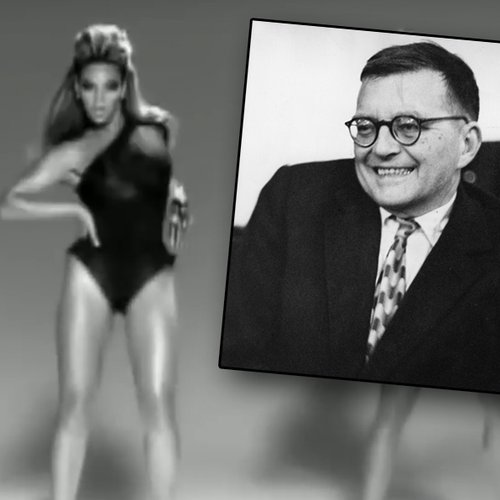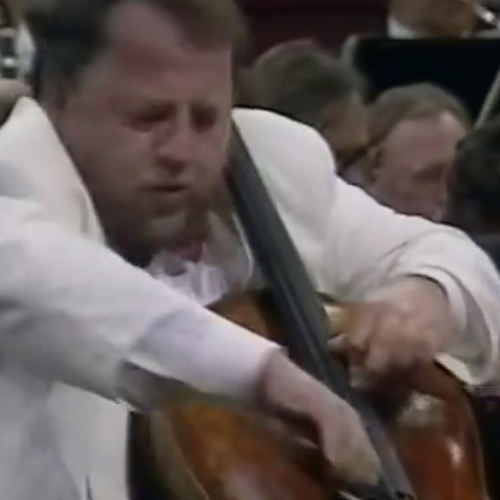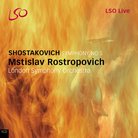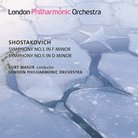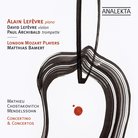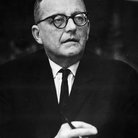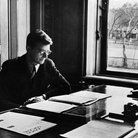The Unsettled Scores Of Dmitri Shostakovich
In a flat on the edge of old Tallinn, Mark Matsov paces and broods among the scores and recordings of his late father, the conductor Roman Matsov. Tourists carousing in the surrounding restaurants have no idea that nearby is the library of a man who struggled for musical freedom during Stalin’s dictatorship.
But Mr Matsov’s work to preserve his father’s legacy is under threat. Estonia has become a member of the EU and the pre-Communist owner of the apartment has returned, demanding a market rate for the rent.
“I cannot afford to stay here much longer,” he says. “The tapes are old. They will disintegrate if they are not transferred to CD and DVD.” He is seeking a “cultural asylum” where the archive can be kept for posterity.
Roman Matsov, together with the composer Dmitri Shostakovich and the little-known pianist Maria Yudina, were involved in a private pact to rescue religious and modern music from Stalin’s “gulag of the arts”.
The world knows how Shostakovich, much-decorated yet also threatened by Stalin, was forced to behave like a court jester, speaking bitter truths for those with ears to hear. But only specialists remember Yudina, thrown out of the Moscow Conservatory because she dedicated her playing to victims of the regime. Matsov, the youngest of the dissident trio, paid a high price for helping Shostakovich and Yudina: he was banned from travelling abroad and spurned by official recording studios.
Roman Matsov, of Baltic-German descent, was born in 1917. He studied violin and piano in Tallinn, Berlin and Leningrad. When the Nazis invaded the Soviet Union he fought on the Soviet side. In action near Leningrad, he was wounded in the right arm, a disaster for a violinist and pianist. As a result, he went on to become conductor of the Estonian Radio Symphony Orchestra.
“He had studied in Germany in the late 1930s and hated fascism,” says his son. “He wanted to defend Russian culture and fight against the anti-human nature of Nazism. As for Soviet totalitarianism, he did not immediately understand that Stalin was a devil.”
In 1949 Roman Matsov and his wife Asmik were living in Tallinn in the flat of an Estonian called Maert Raud.
“There was a knock on the door in the middle of the night,” says Mark, “and the NKVD (forerunner to the KGB) came for Maert and his wife. Mum and Dad told Maert, ‘Run down the back stairs, they have come to arrest you’. By this time, they understood what country they were living in. But Maert said, ‘I have done nothing wrong, why should I run?’ The Estonian couple were sent to their deaths in Siberia.”
Shostakovich had, of course, understood perfectly well since the 1930s what country he was living in. He had already experienced the horror of having Stalin himself dictate vicious newspaper reviews of his work. Many of his friends had been shot. Although he continued to be paraded before the world as the great Soviet composer – and especially after he wrote his “war symphonies” – he feared he would become Stalin’s next victim.
And so he chose Roman Matsov to become his ‘”secret conductor”. Matsov was the one who knew the composer’s real intentions when official musicologists insisted on hearing only the trilling sounds of nature and anti-Nazi themes in the works. Matsov would be the keeper of Shostakovich’s music, if the worst were to befall the composer.
The arrangement was that whenever Shostakovich premiered a new work in Moscow or Leningrad, Matsov would immediately perform the piece with his orchestra, thus ensuring that it was recorded by Estonian radio. If the work was subsequently banned – and Shostakovich’s works were indeed banned in 1948 – there would at least be a copy safe in Tallinn.
Every work that Shostakovich wrote, Matsov performed and recorded. But tapes were often wiped because there was a shortage and they had to be re-used, so Matsov smuggled them out under his jumper. They are in the archive, along with scores annotated by Shostakovich.
Matsov also brought to Estonian audiences the works of many composers whom it was impossible to hear in the rest of the Soviet Union. There were bans on modern composers as well as on the religious works of Bach and Handel. Censors reasoned that, while it mattered little if a few hundred Balts heard a live Bach concert, Matsov was never to be allowed to make records that could have been distributed across the Soviet Union.
In 1951 Matsov was introduced to Maria Yudina, deprived of her living as a musician for daring to combine music with human rights advocacy. The pianist Sviatoslav Richter was surprised at the strangely tragic way she played Bach in the 1940s.
“Well, there was a war going on!” she retorted. A photograph of Yudina shows her dressed like a bag lady in an old coat and canvas sneakers. Matsov promoted her whenever he could.
In the archive, there are also three symphonies that the world has never heard, by an Estonian composer of whom the world has never heard – Heimar Ilves. He was a teacher to Arvo Pärt. In Soviet times Ilves was expelled from the Tallinn Conservatory for his religious faith. He lived in extreme poverty.
“He used to make salads from dandelion leaves,” says Mark. He also had very large feet and could never find shoes to fit.
Mark puts on a video of his father conducting an Ilves work at a local concert. It is hard to make an instant judgement, but Classic FM wants to listen again and again. There is something very haunting about these long lost melodies, reaching the modern listener from the gulag of Soviet music.



